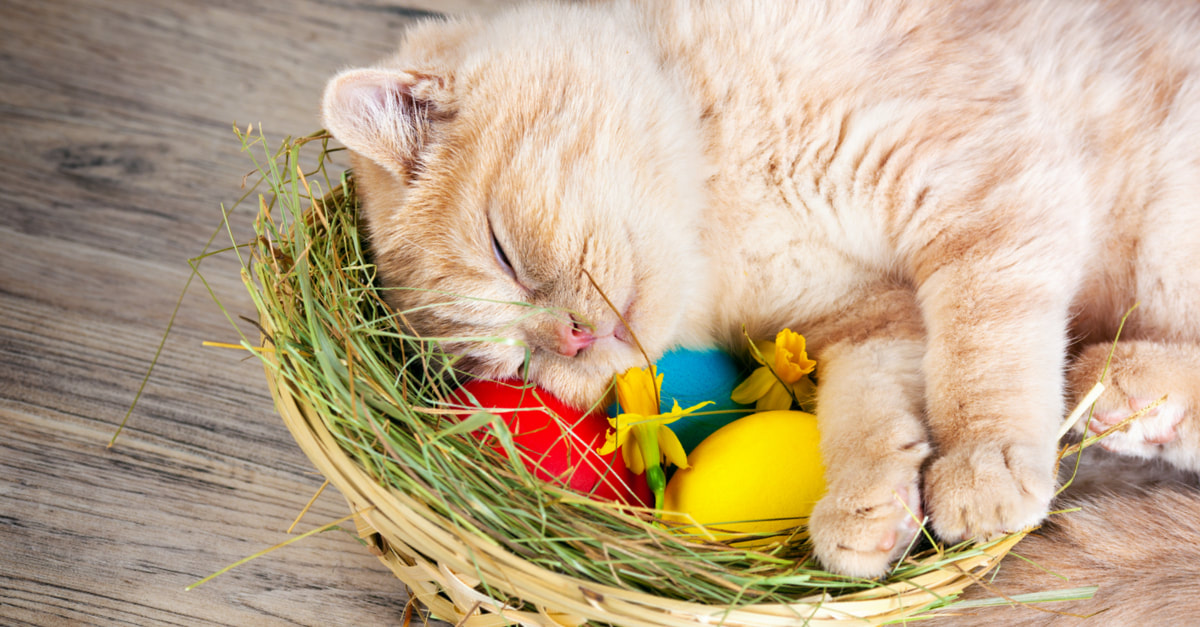|
Spring is in the air and the Easter season is upon us. Mother’s Day is right around the corner too. As you plan your gifting and gathering, there are a few things to know to help keep cats safe while you celebrate.  Lilies All true lilies are toxic and poisonous to cats. Ingestion of even a small amount, be it a nibble on a leaf or grooming pollen from a paw, can lead to acute kidney failure. Despite their prevalence in homes and bouquets this time of year, Easter and all other lilies should be kept away from cats. No matter how beautiful or sweet-smelling, they aren’t worth the risk to your cat’s health.  Chocolate All chocolate is toxic to cats and dogs. The darker and more bitter the chocolate, the more dangerous it is. While cats aren’t typically attracted to sweets, they are curious about the shiny new things that they find, and a foil-wrapped chocolate egg hidden for a hunt may prove too tempting to resist. Never share chocolate or chocolate-flavored treats with your pets. Easter grass Watch out for this common basket-filler. If ingested, these plastic strands can lead to all types of digestive system problems, including vomiting and blockage. Take the same precautions you would for tree tinsel; keep it out of reach of cats and other pets and clean up any loose strands. celebrate safely Nothing spoils a day with loved ones like an emergency trip to the veterinarian. Try these alternatives to make a safe and happy spring season for cats. Flowers & Plants – Avoid all lilies and ask for pet-friendly bouquets when ordering for your home or as a gift. Consult our list of plants that are toxic for cats if you’re unsure. A few pots of cat grass placed around the home can be a safe distraction for cats who like to nibble. If your cat’s appetite for plant fiber is simply insatiable, consider artificial plants and flowers. Treats – Providing a new flavor or variety of your kitty’s favorite snack is a great way to safely include him or her in spring-time festivities. You can even go the extra mile and make your own gourmet cat snacks. A new toy and extra playtime are also good ways to include cats in festivities. Safe Spaces – The sounds of celebration can be a lot for a cat. When the home is full of new people and smells, provide a calm and quiet space away from the partying where your cat can relax or retreat to should he or she become overwhelmed. Take care with open doors too; consider confining indoor cats to a spare room if you and guests will be entering and exiting the home frequently. As always, be prepared. Have your veterinarian’s contact information easily accessible as well as that of the nearest emergency animal hospital. The ASPCA’s 24-hour pet-poison hotline (888-426-4435) could be a resource in an emergency too.
5 Comments
|
Details
AuthorAlley Cat Rescue is leading in the way in promoting humane and compassionate care for ALL cats. Archives
June 2024
Categories
All
|

 RSS Feed
RSS Feed